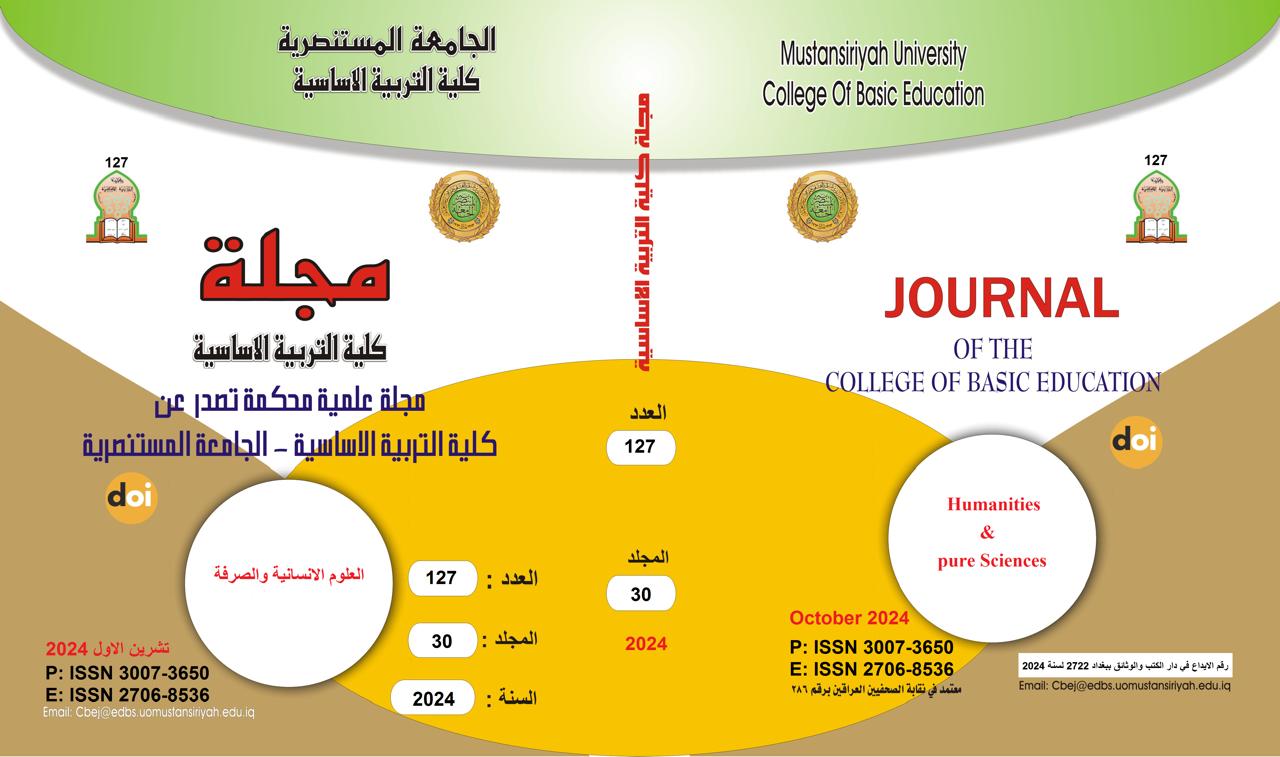The Effect of Transformation Strategy on The Achievement of Fifth-Grade Scientific Students In Chemistry
Main Article Content
Abstract
The current study aims to investigate the impact of the transformation strategy on the academic achievement of fifth-grade science female students in chemistry. The experimental methodology was employed, involving two groups: an experimental group and a control group, both subjected to a post-achievement test. Al-Haditha Secondary School for Girls was intentionally selected as the sample from the research population, which included all public girls' schools under the Anbar Directorate of Education / Haditha Education Section. The total number of fifth-grade science students was 56, divided into two classes (A and B) with 28 students in each. Class A was randomly chosen as the experimental group, and Class B as the control group. After excluding the failing students, each group consisted of 27 students. The experimental and control groups were matched for variables such as chronological age (measured in months), previous academic achievement, prior knowledge test scores, and Raven's intelligence test scores.
The experiment was conducted during the first semester of the academic year, from October 10, 2032, to January 15, 2024, spanning 14 weeks. A total of 35 lesson plans were prepared for both groups. The experimental group was taught using the transformation strategy, while the control group was taught using the conventional method. A research tool, a multiple-choice achievement test with 40 items and four alternatives, was developed. The psychometric properties of the tool were verified through expert review and the calculation of ease, difficulty, discrimination indices, and the effectiveness of incorrect alternatives. The tool's construct validity was confirmed before being administered to both the experimental and control groups under identical conditions. Statistical analyses were performed on the data, revealing the following:
Students taught using the transformation strategy outperformed those taught using the conventional method in the chemistry achievement test.
Based on these findings, several recommendations and suggestions were presented.
Article Details

This work is licensed under a Creative Commons Attribution-ShareAlike 4.0 International License.
